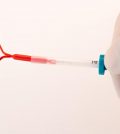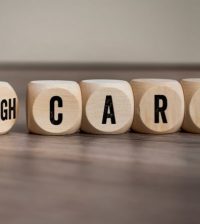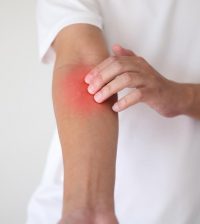- One Day of the Week Has Highest Suicide Risk
- Greater Access to New Weight Loss Meds Could Save More Than 40,000 Lives Per Year
- Implant Might Prevent Opioid Overdose
- Bad Sleep in Middle Age Unhealthy for Aging Brains
- FDA Appoints New Head of Medical Devices
- Abortions Have Increased, Even in States With Bans, Report Finds
- One Dead, 10 Hospitalized in E. Coli Outbreak Linked to McDonald’s Quarter Pounders
- Poll Finds Most Americans Stressed Over Election, Future of Nation
- Election Stressing You Out? An Expert Has Coping Tips
- Even at Low Levels, Arsenic in Drinking Water Could Raise Heart Risks
The Scoop on Avoiding ‘Brain Freeze’

Gulping down a cold smoothie or giant scoop of ice cream sometimes leads to a fleeting severe headache known as “brain freeze.”
But a neurologist says you can avoid it.
“A brain freeze is what happens when cold food touches a bundle of nerves in the back of the palate,” said Dr. Stephanie Vertrees, a headache specialist and clinical assistant professor at Texas A&M College of Medicine.
The medical term for brain freeze is sphenopalatine ganglioneuralgia, she said.
“The sphenopalatine ganglion is a group of nerves that are sensitive to cold food, and when they’re stimulated, they relay information that stimulates a part of the brain to have a headache,” Vertrees explained.
This is the same bundle of nerves responsible for migraine headaches and cluster headaches. “There has been a lot of research done on this bundle of nerves, but mostly for trying to prevent these more serious and longer-lasting headaches,” she said in a university news release.
In some cases, she said, brain freeze could also help treat migraines.
“It may not work for everyone or work every time, but giving yourself a brain freeze can possibly alleviate a migraine,” Vertrees said.
Most people, however, would prefer to ease the temporary discomfort associated with brain freeze or avoid it entirely.
“To avoid brain freeze, eat the cold food much more slowly so that your mouth can warm up the food — don’t inhale it,” Vertrees said. “Keep it in the front of your mouth: the further-back stimulation is what triggers the brain freeze.”
Those who feel a brain freeze coming on can try pressing their tongue to the roof of their mouth to help reduce the pain. The warmth of the tongue can heat up the nasal sinuses and the nerves that make up the sphenopalatine ganglion, according to Vertrees.
“Brain freezes are not dangerous and very self-limiting,” she said. “It’s about slowing down and being patient and aware of the likelihood of getting a brain freeze if you eat or drink too fast.”
More information
Harvard Medical School has more about what causes brain freeze.
Source: HealthDay
Copyright © 2024 HealthDay. All rights reserved.








-200x224.jpg)

